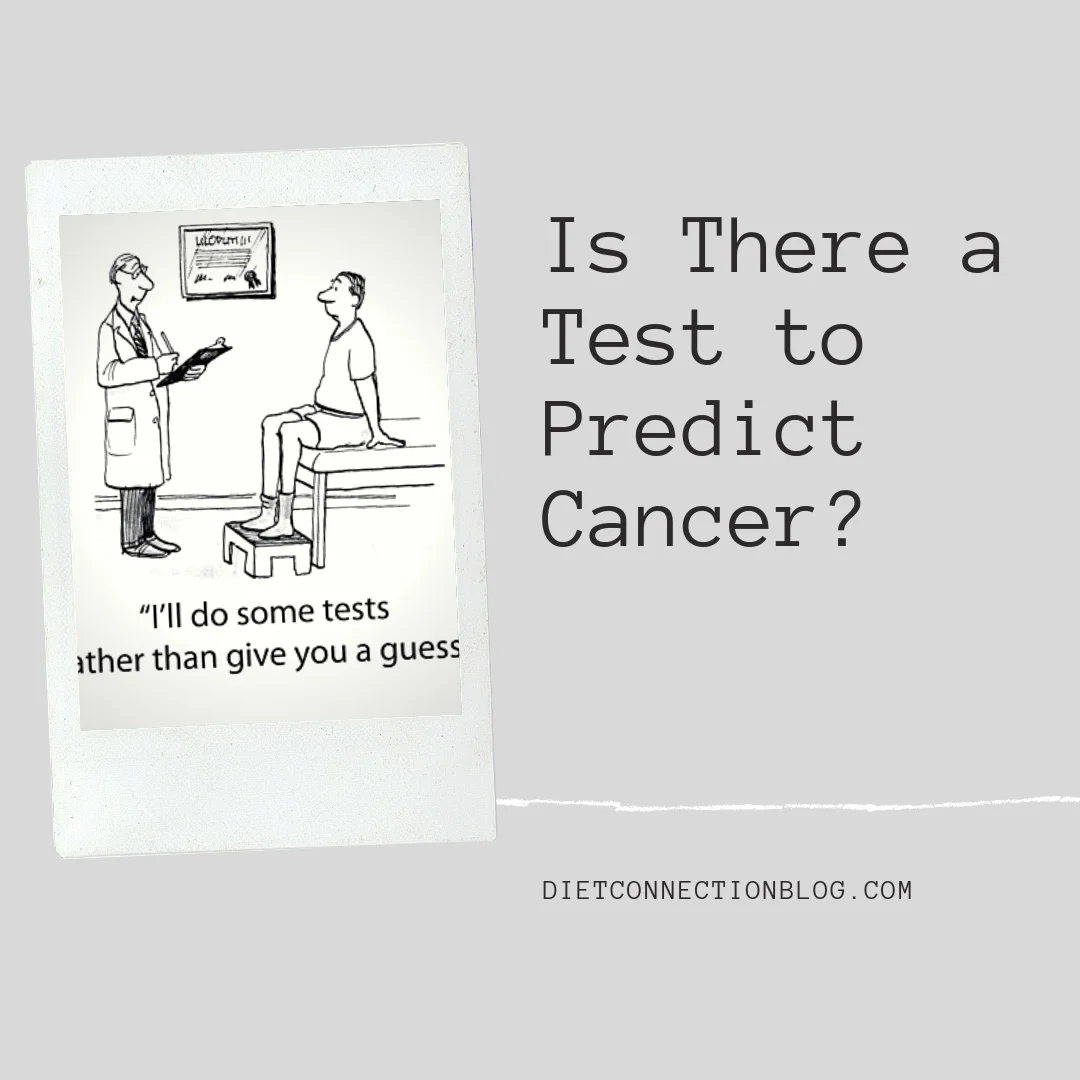Is There a Test to Predict Cancer?
Do you think it’s possible to predict your chance of getting cancer by a blood test, or is that just science fiction?
Many studies have found a correlation between obesity and cancer. Additional studies have found a correlation between high IGF-1 levels and cancer. Other studies have reported positive correlations between total body fat and IGF-1 concentrations.
Current recommendations from the World Cancer Research Fund suggest that the median adult BMI (Body Mass Index) should be maintained between 21 and 23. The chart below gives average BMI scores for people eating certain diets.
TYPE OF DIET
AVERAGE BMI
Raw vegans 21.3
Vegans 23.6
Vegetarians 25.7
Flexitarians 27.3
Meat-eaters 28.8
In rodents, long-term severe caloric restriction (CR) reduced BMI and IGF-1 (insulin-like growth factor) levels. But in research comparing human vegans and long-term endurance runners (ran an average of 48 miles/wk) they found that only the vegans had significantly lower levels of IGF-1.
In other words, just getting slim through exercise without reducing your IGF-1 level could leave you open to higher cancer risks.
IGF-1 PLASMA LEVELS (ng/mL)
Vegans 139
Long-distance Runners 177
Meat Eaters 201
To find out your IGF-1 score, you can take a blood test for $129. Scores are not “cut and dried” like they are on the BMI chart for adults. The chart below will give you normal ranges for different age groups. To protect yourself from cancer, you will want to be sure your IGF-1 is toward the low end for your age group in the chart below.
AGE & NORMAL RANGES OF IGF-1
16-24 182-780
25-39 114-492
40-54 90-360
References:
“Cancer Incidence and Mortality in Relation to Body Mass Index (BMI) in the Million Women Study: Cohort Study”
“A Twenty-First Century Cancer Epidemic Caused by Obesity: The Involvement of Insulin, Diabetes, and Insulin-Like Growth Factors”
“Relationships Between IGF-1 and IGFBP-1 and Adiposity in Obese African-American and Latino Adolescents”
“Long-term Low Protein, Low-caloric Diet and Endurance Exercise Modulate Metabolic Factors Associated with Cancer Risk.”




